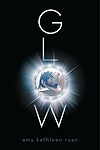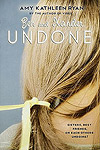We all do it, even though we know we shouldn't. Every major religion condemns lying; you can see for yourself if you click on the link above. If it's so universally frowned upon in practically every culture on Earth, then why is it so common?
Let's be honest. (Ha.) Who hasn't made their lives a little bit easier with the occasional untruth? "I love your new haircut!" "My cell phone was dead." "Oh I didn't know you were coming into town!" Or, my favorite: "No. I'm not mad." Lies make our day to day existence a little easier. They can smooth over hurt feelings. They allow us to better get along with each other. So how can they be so bad?
I was raised a very strict Catholic, and I took the whole "Ten Commandments" thing seriously. Thou Shalt Not Lie? Okay. From God's lips to my ears! Even if a lie could have gotten me out of a tight spot, I refrained. I softened the truth, perhaps, but I always told it. Almost always, anyway. And if I was weak in the moment, and I did tell a lie, I would later confess it and explain myself, hoping for forgiveness. But to my parents, and I'm being honest here, I hardly ever lied. I'm sitting here trying to remember a single lie I told them, and I cannot. I was a very truthful kid. I took truthfulness so seriously that my honesty became widely known and appreciated about me. One guy in my college told another girl he liked me because I seemed like I'd always be straight with them, and I mostly was. (Mostly. Once I made a painful mistake that I'll always regret because I didn't understand the relationship I was in, but that's another blog post.) Once I graduated, my boss was fond of exclaiming about me: "Amy is the most HONEST person you'll ever meet!" I liked being known for that. It made me feel really good.
Then, shortly after I graduated from college, my parents began divorce proceedings. My brother and I were both young adults living on our own so there was no custody battle, and our parents had been separated for years, so it ought to have been a somewhat amicable negotiation, but it was NOT. Nasty secrets were dragged from the war-chest; accusations and denials flew through the air like ballistic missiles. Two people I'd have sworn were fairly mature individuals turned into spitting screaming toddlers. I was shocked, and then I was numb, and then I was confused. There were so many accusations flying around that I realized at one point: One or both of my parents are lying to me.
I realize this is common behavior during a divorce. Legal lawsuits rarely bring out the best in people, but when the plaintiffs used to sleep together and know each other's secrets, things can get evil. Even knowing this truth didn't help me cope with the idea that my parents, whom I'd struggled my entire life to be completely honest with, were telling me lies, and about really big important things too.
Then I began to realize that all the adults around me lied, a LOT. My coworkers lied, my friends lied, the frigging President of the United States was telling some whoppers... It seemed like I was the ONLY person in the world who really cared about telling the truth. I was fed up, and I started trying it out. I started lying.
It was about little things at first. "Sorry I'm late but my car broke down." "I can't come to your wedding because I have to work." "Yeah, I've got a cold. Can't come to work today." THEN, the party fund happened.
The party fund.
I worked in a jewelry store for that same boss who was always proclaiming my honesty. Sometimes women would bring their diamond rings in to be steam cleaned. It was kind of fun putting on the safety gloves and getting out the rubber-grip pliers to hold the ring under the vapor that jetted through a tiny spigot, blowing all the dirt and crud off someone's shiny diamond. I loved doing it. It cost the person a couple bucks, but instead of keeping track of such a tiny sale in the register our boss had us put the cash in a coffee can for later use as a party fund. WELL, one day I rushed in to work at the last second and discovered I had no money for a cup of coffee at the nearby coffee stand. I didn't want a caffeine headache, so I borrowed a couple bucks from the party fund to be paid back later. Only... did I pay it back? I couldn't remember. And I was late a few more times, and borrowed a little more, until I lost track of how much money I'd borrowed in the first place. Basically, I was stealing. Little Miss Honesty had graduated to the big time. Yep. That's right. I had become a petty thief.
Little did I know that one of my coworkers was keeping close track of the party fund, and she brought it to my boss's attention that something like twenty bucks was missing, and it came out at an employee meeting. My face went cold, and I sat there embarrassed and feeling like a jerk, but did I own up to it? I should have. I really should have explained I'd just needed some coffee and I'd always meant to pay it back. I didn't, though, and the mystery remained unsolved. Ever after, I had a hard time holding my head up at work. I felt miserable about it. You know what? I still do.
I'd gone from being painstakingly honest to a thief in a few short months.
If I hadn't told those little lies, would I have worked my way up to wholesale thievery? Who can say? Now that I'm older I can recognize how young and confused I was, and I can see that I was acting out. I felt disillusioned with the world, disappointed and let down by people who were very close to me, and I wanted to lash out. I wanted to take advantage of other people's trust the way I felt I'd been taken advantage of. It might've felt good in the moment, but in the long term it feels bad. It's one of my more painful memories.
After that, my boss stopped proclaiming my honesty because, of course, she figured it out. I think all my coworkers kind of realized it must be me. I lost face with them. I lost their respect. I felt degraded, and then I started feeling left out of conversations, and not really "in" with people anymore. Of course the stealing didn't help my image, but if I'd owned up to it, if I'd just been honest in the moment and said, "Oh, that was me. I needed some quick cash and I was going to pay it back on payday. Sorry." People might've been weirded out by it, but I would have been redeemable after that. Because I lied, no redemption for me.
My parents' divorce went through, they settled out of court, the dust settled, and then... There I was. Somehow not the same person I'd been when the whole thing began, but I don't think it was my parents' actions that changed me. My actions, my decision to experiment with being a liar, put a mark on me, and it was a mark that I thought everyone around me could see, and I was ashamed.
So now I'm back to being painstakingly honest, or at least I try to be. Somehow I don't have the same discipline that I did as a kid, maybe because I woke up to how much I was being lied to on a daily basis, because we all do it, right? Ever since I had a taste of how much easier it is to lie, though, it's harder. I struggle more with the temptation. The big one for me is being honest with friends when I'm mad at them. I'm too afraid of losing the friendship. But I try to always tell the truth to everyone. And if the truth is too painful? I try to say nothing at all.
I think that lying is frowned upon in most cultures because of this effect it has on the human spirit. There is no dignity in lying, and that's the truth. When you lie you are skirting responsibility, trying to avoid the consequences of your actions, or you're trying to manipulate the people around you, using them as pawns. Lying never comes from a place of strength. It's a sniveling, crawling, sneaking way of wriggling out of the difficulties in relating to other people. Lying is weak. It takes strength and courage to be honest, it really does. That's why so many people lie so much of the time. Honesty is hard. But the person who is honest can always hold their head up. They can always be proud of who they are. And other people usually respect that integrity. In fact, I believe honesty is the only way to deserve the respect of others, but perhaps more important, it ensures the respect of self. Believe me, solid self-respect is worth suffering through those uncomfortable moments of truth telling.
Whether you believe in the existence of sin, honesty is the more practical route. In the long run, owning the truth is safer, and much more dignified. Honesty is the path to good social standing. Lying is a certain path to disrepute.














Aaargh! Amy, you stabbed me in the heart. I still get serious pangs of humiliation and guilt over a couple of lies I told my dad when I was a teenager...and my dad passed away 33 years ago. The really horrible thing about lying (or any mean act we might commit when young) is that the memory might be successfully suppressed for a long time, but eventually, if we live long enough, the Universe starts forcing those memories to the surface. It feels just as bad, if not worse, when we remember years later.
ReplyDeleteAh, the shame spiral! Easy to get in, hard to get out.
ReplyDeleteBeautifully written, Amy!!!
ReplyDeleteThank you Aimie!
DeleteWe've probably all lied a one time or another. But I also believe in forgiveness. Once we've confessed and have been forgiven by others, I think it's important we forgive ourselves. One of the beautiful thinks about confession is that it includes "a firm purpose of amendment." (Sound familiar?) Not that we always follow through - we'e human, dammit, and not perfect. But we're still worthy of forgiveness "seven times seventy" times, i.e.,an infinite number. If we're willing to forgive one another, we ought to be able to forgive ;ourselves. Thanks, Amy, for an honest, courageous, and helpful post. JP
ReplyDeleteThank you John for such a kind comment.
ReplyDeleteUh, not to pick nits, but thou shalt not lie isn't one of the commandments. And as a a Catholic, technically, you wouldn't have been bound by ANY of the commandments since they were intended for Jews.
ReplyDeleteBTW, Have you read Sam Harris' book, Lying? Interesting stuff.
Maybe it depends on the translation. Thou shall not bear false witness is interpreted to mean not to lie in the Catholic tradition I was raised in. Are you Catholic? Because the ten commandments are in the catechism.
DeleteMy family is Jewish. I had a bar mitzvah, but will probably be the last to do so because Penny was raised non-practicing Christian and we're both atheists.
ReplyDeleteI can definitely see that false witness is interpreted as lying in general.
Interesting that it's part of the catechism. The ten commandments, as you probably know, were given to Moses as the laws for the Jewish people; don't kill, steal (aka common sense), plant two kinds of seeds in the same field ... how to sacrifice an animal to the Lord so as not to piss him off, and other randomness that was mostly intended to make life easier for Semitic people living in the desert two and half centuries ago.
I definitely agree that lying is almost always a bad idea. But, IMO, there are definitely grey areas where sparing someone's feelings, or simply avoiding a much longer story that doesn't need to be reveled, is truly the better way to go.
I am an atheist too, but I am non-dogmatic about it. What I mean is that, as an atheist I strongly believe no one knows for sure about that aspect of our existence which may or may not transcend our physical form, and any higher beings that may or may not exist. Mine is an almost agnostic point of view, just because I am highly skeptical of any kind of dogma, even one that denies the possibility of a god. I think that religion makes a lot of people feel better about their lives and their place in the world, and who am I to deny them that comfort? (As long as they're not going around hurting anyone, obviously.) As far as white lies go, yes, I can see the truth in what you're saying, BUT, I think a white lie can be replaced by a tactful non-response in most cases. I would never claim I never lie. I can only claim that I try not to.
ReplyDeletePenny and I had a conversation when we first started dating. I was already in full-on atheist mode and she was much closer to your agnostic point of view, so that obviously colored our perspectives. She asked me, similar to your question, "who am I to deny people the comfort of their belief?" My response was that twofold. First, people take comfort in alcohol, or heroin, or eating too much. Now, I know plenty of of functional alcoholics, addicts, and obese people. But, if I genuinely care about them, is it simply OK for me to ignore that they are, in reality, hurting themselves? I mean, after all, they're providing comfort for themselves.
ReplyDeleteReligion is the same, if not in some ways worse. You're telling people that it's OK to take comfort in a lie. Maybe there's a "higher power" and maybe there isn't, but we KNOW, that there's no God of the bible. We KNOW that Jesus isn't sitting on a cloud just waiting for the right time to show up again. In psychiatry this is called a fixed false belief. A delusion. If someone says the believe in Jesus we allow it, and we allow them to act in accordance with that belief, to the point where they don't have to pay taxes. But if someone says they ARE Jesus we put them away. What's the difference?
If you suddenly found out that your husband and the father of your children was actually living a double life, that he had an entire second family complete with wife and children, and had been living that way for a decade, would that change how you feel about him? Nothing else has changed: you still see him the same amount of hours per day, he's still a good provider, husband, father, but had been lying this entire time, would that change how you feel? My guess is yes. This speaks to not only the very essences of your post about lying, but the question of religious delusion. It's bad, because it's false.
You write that you never try to lie, but you're OK with people creating, believing, and living under the biggest lie of all. That there's a reward in the afterlife for them if they just eat the right foods, say prayers exactly the right way, hate the right people. Beliefs, no matter how comforting to the individual, DO lead to actions, and religious actions, but design, are intended to include some while intentionally excluding others, that is non-believers. There's no such thing as benign faith.
Of course, I'm being intentionally provocative here, but I think my point is valid. Allowing someone to take comfort in a delusion isn't curing any root problems, it's just burying them under a comforter.
I'm saying I don't know for sure if it's a lie or not. I can't prove there is a god, and I can't prove there isn't. You know for sure. I don't expect to convince you not to believe what you believe, just like I don't expect to convince anyone else either. So I prefer not to waste the energy. I am not an evangelist for atheism. It's just not my bag.
ReplyDeleteI'm not an evangelist for atheism either. I'm an evangelist for the truth. Not being able to disprove something doesn't mean it's not real. The obvious case being Santa. I can't really disprove him, but does that mean that an intelligent person looking at all the possibilities shouldn't side with the argument against him?
ReplyDeleteBut you have to admit, that it's interesting that in a blog post regarding lying and truth telling, you're not interested in trying to get to the truth regarding what is likely the biggest lie of all. The one lie that has caused more death, misery, war, and internal personal suffering than any other. $20 ain't got nothin' on that.
Thanks for (patiently) reading and responding. I appreciate it. Though I'm sure it's exasperating.
Falling out from a divocre must always be taken into consideration, especially among those who are often at the receiving end of it, such as the children. That should be part of the process of analysis and assessement, not just in terms of counselling, but also in terms of material support. I believe divorce should ultimately be made equitable for everyone. In any way, thanks for sharing that, Amy! All the best to you!
ReplyDeleteJoanne Krueger @ Kurtz & Blum
Thank you Joanne. It was a tough time, but we all came through it happier people.
Delete